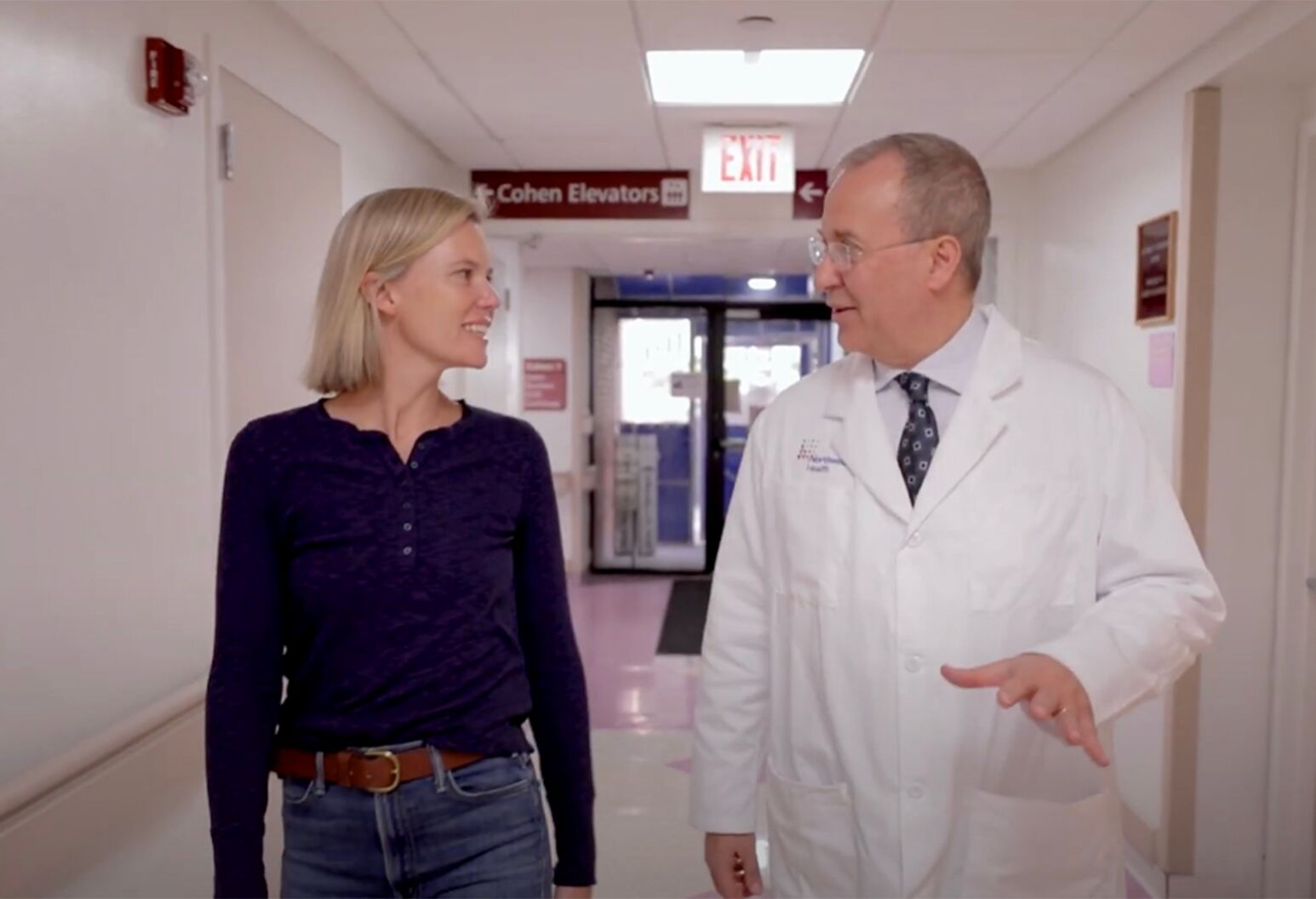Our representatives are available to schedule your appointment Monday through Friday from 9am to 5pm.
For a Northwell ambulance, call
(833) 259-2367.

Gastroenterologist and surgeon Feza Remzi, MD, has seen many of his patients with inflammatory bowel disease lose hope of ever finding relief. Between ineffective medicine and failed surgery, he said, “patients may feel like they are swimming in an ocean with no direction. And that can be draining not only to the patient but also the family.”
Complications after inflammatory bowel disease surgery occur in as many as 40% of procedures, according to a 2023 study. Hoping to cut into that number, Dr. Remzi formed the Center for Advanced Inflammatory Bowel Disease Care at Northwell Health. The center unites gastroenterologists, surgeons, nutritionists and other professionals around one goal: making inflammatory bowel disease care effective, efficient and safe.
Dr. Remzi joined an episode of 20-Minute Health Talk to explain what inflammatory bowel disease patients need to know about their condition and how the IBD Center can help them.
Inflammatory bowel disease is an autoimmune condition — the immune system mistakenly attacks healthy tissue, leading to chronic inflammation in the gut.
The condition is caused by either of two diseases: ulcerative colitis or Crohn’s disease. Ulcerative colitis appears only in the colon, while Crohn’s can set in anywhere along the digestive tract, from the mouth to the anus. Each condition carries a greater likelihood of certain symptoms; ulcerative colitis patients are likelier to find blood in their stool, whereas Crohn’s patients more frequently encounter strictures — narrowing of the intestines caused by inflammation.
Dr. Remzi listed many symptoms common to both conditions:
Some patients have such severe symptoms that they adopt a “deconditioned mindset,” said Dr. Remzi.
“Deconditioning is accepting a lesser way of living as a norm,” he explains. “Suck it up, don’t complain for the family, and just hang in there because there’s no other alternative. And that can be draining.”
This takes a toll on people with IBD. “A lot of my patients who are parents cannot do many things they like to do,” he said. “They cannot go to a kid’s school activity, or the kids cannot go to a play date. They try to live their life in a way that restricts everybody’s freedom, and that can be very, very devastating. Not only for the patient, but everyone.”
To reach a diagnosis, a gastroenterologist will employ a combination of bloodwork, imaging (like CT or MRI scans) and a review of the patient’s medical history and symptoms.
The first step in treating inflammatory bowel disease is medical therapy.
Medications may be enough to treat inflammatory bowel disease. But if the patient isn't finding relief, said Dr. Remzi, it's important to move on to other treatments — the sooner, the better. “One therapy is okay; two or three therapies is okay,” he explained. “But four, five or six different drugs in a long period of time where the patients come to us sicker than usual with weight loss and several restrictions, makes surgery very difficult on our patients.”
If your symptoms don't respond to medications, your surgeon will work with you to determine which of the many procedures for inflammatory bowel disease is right for you. Surgeries include:
Full recovery from surgery typically takes anywhere from four to 12 weeks.
Northwell opened its IBD Center in April of 2024, which is serving a critical function for patients, including those who have been misdiagnosed or whose surgery has failed. Dr. Remzi has seen some patients with ostomy bags they didn't actually need.
“That’s the reason it’s very prudent for our patients, when they get the diagnosis, to get their surgery done in a very high-volume center like here at Northwell. This way, they could avoid the complications with the surgery so they don’t have to undergo a second redo procedure when the first has failed,” Dr. Remzi explained.
Inflammatory bowel disease care was already available across Northwell; what distinguishes the IBD Center is the collection of experts across fields, gathered in one place.
The IBD Center team includes:
The high level of specialization and collaboration across teams means fewer surgical complications.
“Subspecialization in the setting of inflammatory bowel disease is the most important factor that impacts the outcome of treatment,” Dr. Remzi noted.
Despite being relatively new, the Center has already accepted patients from 30 states around the country, Dr. Remzi said, “including Alaska.”
The Center also supports the research efforts of The Feinstein Institutes for Medical Research, Northwell’s research body, through the Center's tissue bank: Dr. Remzi explained that the bank allows him and colleagues to store stool, urine and biopsy samples collected from patients, which Feinstein Institutes' researchers can tap for research on IBD.
One such study, conducted by pediatric gastroenterologist Benjamin Sahn, MD, investigated vagus nerve stimulation as a potential treatment for inflammatory bowel disease in children. The study found that stimulating the nerve via the ear reduced inflammation in 64% of the children in the trial.
Dr. Remzi is hopeful that studies like these will continue to push inflammatory bowel disease care forward. “It may not be an immediate answer for today,” he said, “but it may serve a dramatic answer in five to ten years’ time.”
Our representatives are available to schedule your appointment Monday through Friday from 9am to 5pm.
For a Northwell ambulance, call
(833) 259-2367.